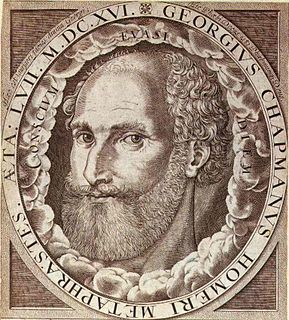A Quote by Vincent de Paul
In order to become soundly virtuous, it is advisable to make good practical resolutions concerning particular acts of the virtues and to be faithful in carrying the out afterwards. Without doing that, one is often virtuous only in one's imagination.
Related Quotes
The pleasure of a good act is something to be remembered - not in order to feed our complacency but in order to remind us that virtuous actions are not only possible and valuable, but that they can become easier and more delightful and more fruitful than the acts of vice which oppose and frustrate them.
It must not be supposed that happiness will demand many or great possessions; for self-sufficiency does not depend on excessive abundance, nor does moral conduct, and it is possible to perform noble deeds even without being ruler of land and sea: one can do virtuous acts with quite moderate resources. This may be clearly observed in experience: private citizens do not seem to be less but more given to doing virtuous actions than princes and potentates. It is sufficient then if moderate resources are forthcoming; for a life of virtuous activity will be essentially a happy life.
Philosophers should resist the temptation to be publicly virtuous. Given an unjust society, from the vantage of what counts as the public good, they are corrupters, not edifiers. The desire to be seen to be virtuous, to make a positive contribution, is a deleterious symptom of professionalization. Philosophy's social utility is an ersatz for its duty to mount challenges to the entire social order.
The fact that only humans above a certain age can be morally virtuous, rather than babies or cats, means that that being moral requires some cognitive ability. If virtue is about desires, it is worth remembering that you can't desire some things without being able to conceive of them. Suppose a virtuous person will desire to make people happy and desire to tell the truth. You can't desire to make people happy without having the concept "happy" and you can't desire to be truthful if you don't have have the concept "lie", so a cat or a baby cannot desire these things.
By the worldly standards of public life, all scholars in their work are of course oddly virtuous. They do not make wild claims, they do not cheat, they do not try to persuade at any cost, they appeal neither to prejudice nor to authority, they are often frank about their ignorance, their disputes are fairly decorous, they do not confuse what is being argued with race, politics, sex or age, they listen patiently to the young and to the old who both know everything. These are the general virtues of scholarship, and they are peculiarly the virtues of science.
Nothing that is worth doing can be achieved in our lifetime; therefore we must be saved by hope. Nothing which is true or beautiful or good makes complete sense in any immediate context of history; therefore we must be saved by faith. Nothing we do, however virtuous, can be accomplished alone; therefore we must be saved by love. No virtuous act is quite as virtuous from the standpoint of our friend or foe as it is from our standpoint. Therefore we must be saved by the final form of love which is forgiveness.
The truth is . . . that the great artists of the world are never puritans, and seldom ever ordinarily respectable. No virtuous man - that is, virtuous in the YMCA sense - has ever painted a picture worth looking at, or written a symphony worth hearing, or a book worth reading, and it is highly improbable that the thing has ever been done by a virtuous woman.




































